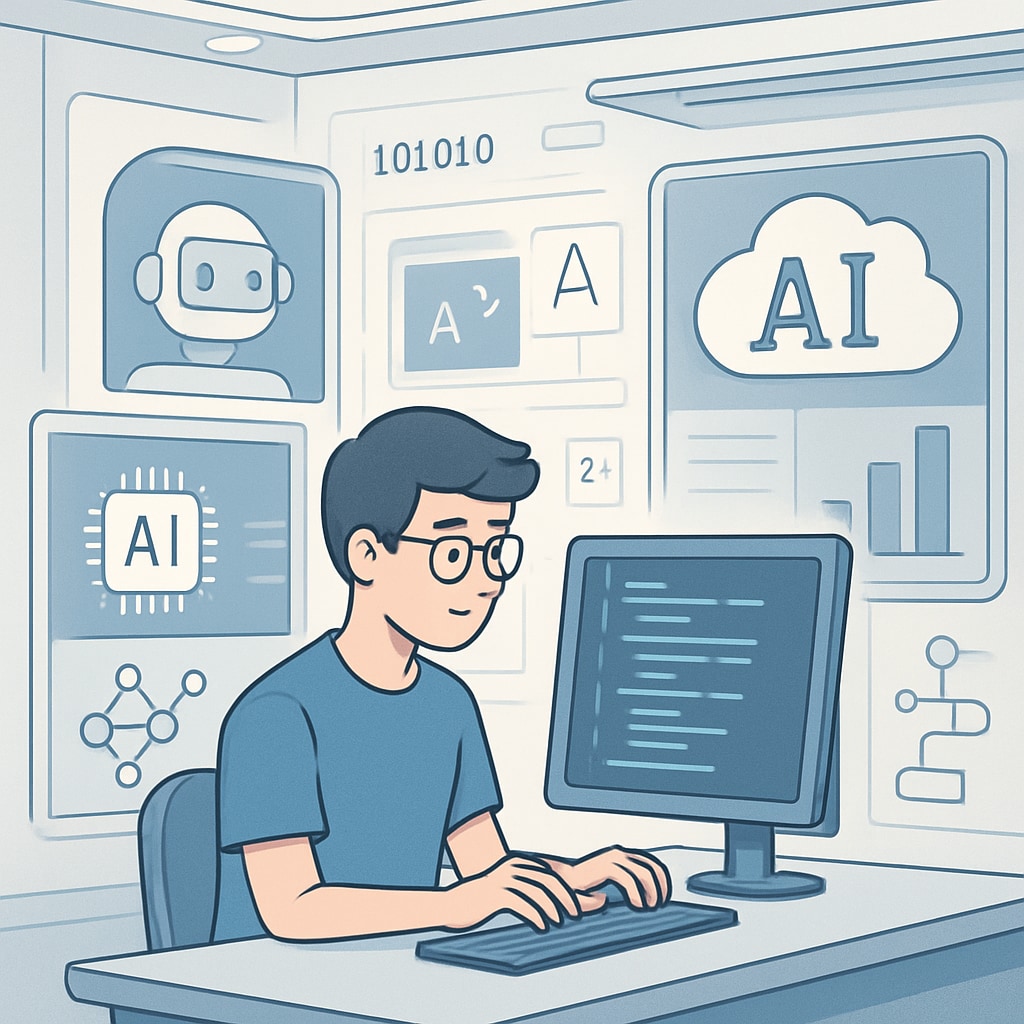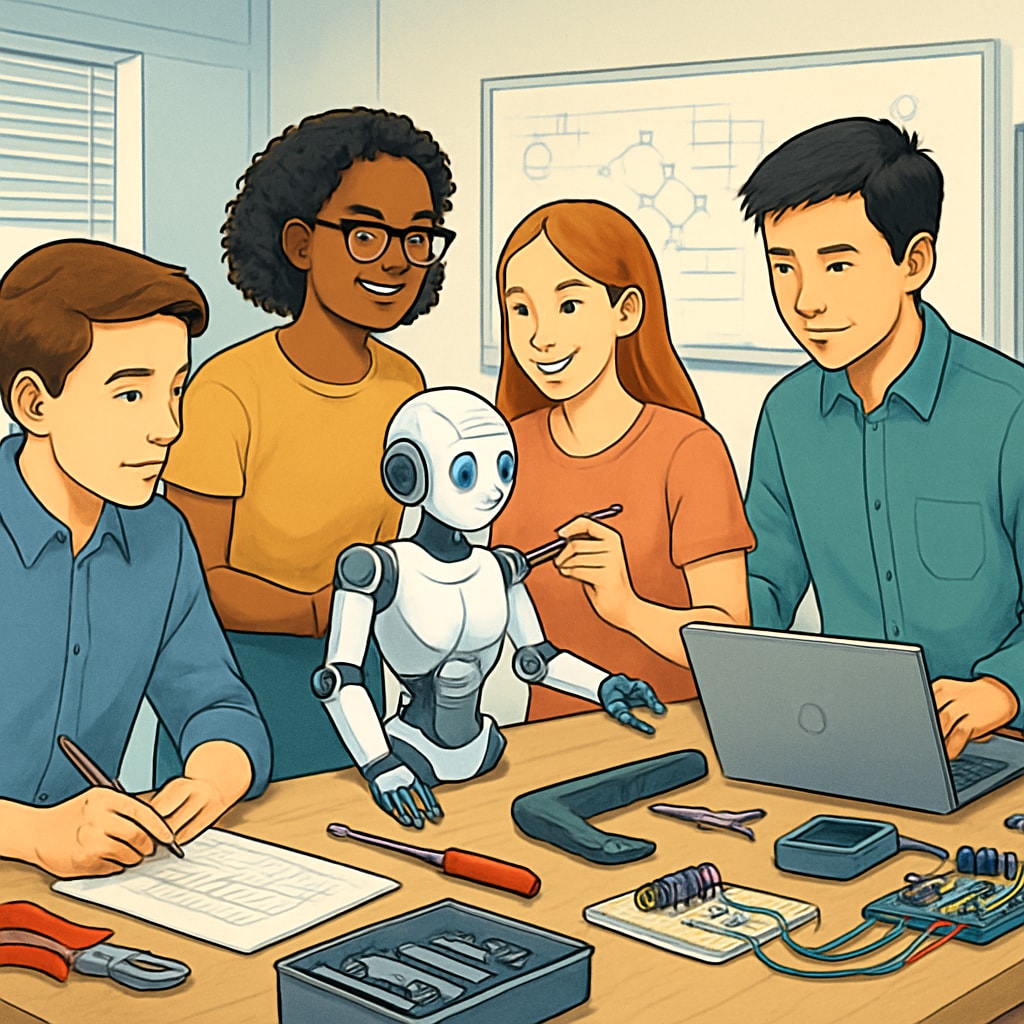The rapid advancement of artificial intelligence (AI) has transformed industries worldwide, sparking both opportunities and challenges. For 8th-grade students, questions about career choices like programmers and engineers have become increasingly relevant. This article delves into the evolving landscape of engineering and programming professions, offering insights to help young individuals navigate their future in an AI-driven world.
The Impact of AI on Career Choices
Artificial intelligence is reshaping the job market at an unprecedented pace. From automating routine tasks to enhancing problem-solving capabilities, AI affects nearly every profession. For aspiring programmers and engineers, this evolution brings both excitement and uncertainty. Which path should they choose, and how can they prepare for the challenges ahead?
Engineers and programmers share overlapping skills but operate in distinct spheres. While programmers focus on developing software, applications, and algorithms, engineers integrate these technologies into physical systems, infrastructure, or products. As AI continues to expand, the demand for both roles is expected to shift in unique ways.

Programming: The Backbone of AI
Programming lies at the core of AI development. Programmers design the algorithms that enable machines to learn, reason, and solve problems. With the growing reliance on AI-based solutions, the demand for skilled programmers is surging. However, this field is not without its challenges. For example, tasks like debugging and coding are increasingly automated, raising concerns about job security.
To thrive as a programmer, students need to focus on developing creative and critical thinking skills. Specializing in fields like machine learning, data science, or natural language processing (NLP) can provide a competitive edge. Additionally, staying updated with programming languages such as Python, Java, or C++ is essential.
- Focus on AI-related specializations like machine learning and data science.
- Learn programming languages like Python, Java, or C++.
- Hone creative and critical thinking skills to solve complex problems.
Engineering: Building the AI-Powered Future
While programmers create the software, engineers turn these innovations into tangible applications. For instance, robotics engineers design automated systems, while civil engineers use AI to optimize construction projects. The integration of AI in engineering has unlocked new possibilities, such as predictive maintenance, energy-efficient designs, and smart infrastructure.
However, the engineering field also faces challenges. As AI automates repetitive tasks, engineers must focus on roles that require strategic thinking, creativity, and interdisciplinary collaboration. Aspiring engineers should consider fields like robotics, electrical engineering, or sustainable technologies.

Choosing the Right Path: Guidance for Students
Deciding between programming and engineering can be daunting. Here are some practical tips for 8th-grade students:
- Assess Your Strengths: Are you more inclined toward logical problem-solving (programming) or hands-on creation (engineering)?
- Research Career Trends: Explore how AI is impacting job prospects in your chosen field. For example, check resources like Britannica on Artificial Intelligence.
- Develop Core Skills: Regardless of your choice, skills like teamwork, communication, and adaptability are essential.
- Seek Mentorship: Connect with professionals in your area of interest to gain insights into day-to-day work.
- Stay Curious: Continuously learn about emerging technologies and their impact on careers.
Looking Ahead: Adapting to Technological Change
The future of work will be shaped by AI, but human creativity and adaptability remain irreplaceable. Whether students choose programming or engineering, they must embrace lifelong learning to stay relevant. By building a strong foundation in STEM (Science, Technology, Engineering, and Mathematics) and exploring interdisciplinary skills, they can thrive in the AI era.
As AI continues to advance, the key to success lies in understanding its potential and leveraging it for innovation. Both programmers and engineers have vital roles to play in shaping the future, making their contributions indispensable to society.
Readability guidance: This article uses short paragraphs and structured sections to ensure clarity. Lists summarize key points, and transitions like “however” and “for example” improve flow. Students can use the tips provided to make informed career decisions.


